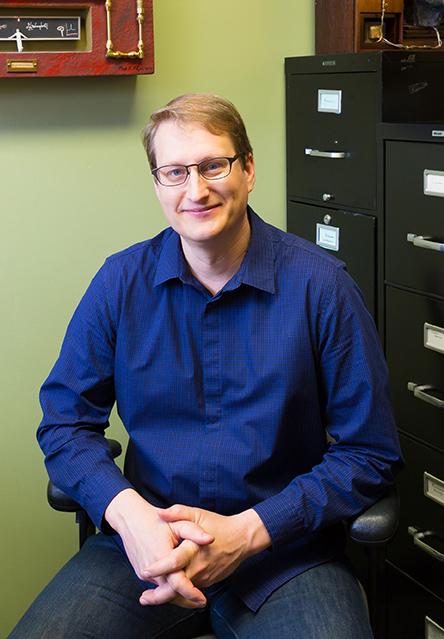
 Associate Professor of Psychological Sciences
Associate Professor of Psychological Sciences“I’m a behavioral neuroscientist and for the past two decades I’ve worked to better understand diseases that destroy the brain. I’ve worked on techniques to improve the survival of newly transplanted brain cells as a treatment for Parkinson’s disease, and more recently, conducted experiments using a genetic technique to halt the production of toxic proteins as a potential treatment for Huntington’s disease, a fatal genetic disorder. Currently, my students and I are running experiments designed to identify the neural circuits and neurotransmitters that play a role in the depression that affects those who suffer from Huntington’s disease. It was long assumed that the depression was a reaction to the stark realization that the person has a fatal disease. However, it is now clear that the depressive symptoms are the result of the neuropathology generated by a mutant gene. My lab’s goal is to identify the precise brain structures involved so that they can be targeted and treated.
Students play an essential role in all aspects of my research, from generating research questions to the publication of findings. They learn how to conduct rodent brain surgeries, to measure a wide variety of behaviors, to cut and stain brain sections, analyze tissue under the microscope, measure changes on MRI scans, statistically analyze data, and write up the results. I’ve been exceptionally lucky to have worked with a parade of gifted students, many of whom are now in Ph.D. programs for neuroscience or related fields.
I would like students to walk away from my courses with an understanding of how their brain evolved, how it functions, and the various cognitive and perceptual biases that can often lead us astray. I try to help them build a solid foundation of current findings in the field and then attempt to inject an industrial-strength dose of enthusiasm about the subject. My hope is that when they leave UP, they can take the field of neuroscience in shockingly new directions.”
University of Portland
5000 N. Willamette Blvd.,
Portland, Oregon 97203-5798
503.943.8000
This website uses cookies to track information for analytics purposes. You can view the full University of Portland privacy policy for more information.
